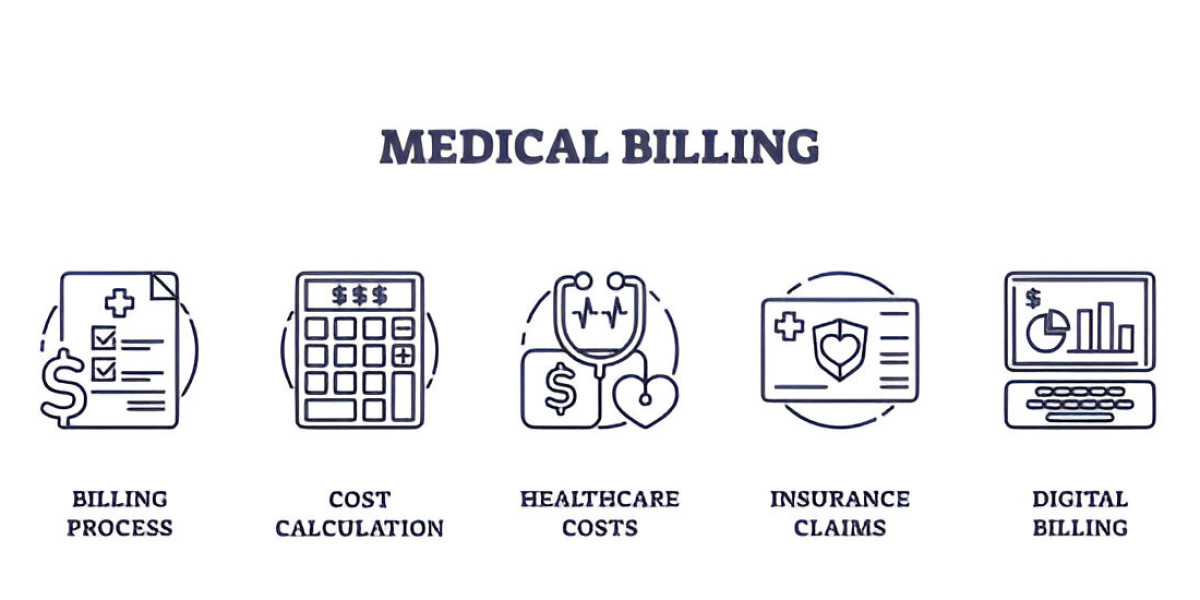Medical billing is one of the most critical pillars of a healthcare practice’s financial success. For specialties like cardiology and anesthesiology, the billing process is more complex than in primary care. Physicians working in these fields often provide high-value, procedure-heavy, and time-sensitive care. Without accurate documentation, coding, claim submission, and follow-up, practices face delayed payments, denied claims, or compliance issues. That’s why implementing streamlined and accurate billing solutions is essential for both cardiology and anesthesiology practices.
The Unique Challenges in Cardiology Billing
Cardiology billing involves a wide range of procedures, diagnostics, and interventions. From simple electrocardiograms (ECGs) to advanced interventional cardiology treatments like stent placement or electrophysiology studies, each service has unique codes, modifiers, and payer rules.
Key Pain Points in Cardiology Billing:
Complex Coding Structure – Cardiology uses CPT and ICD-10 codes that change frequently. Misuse of modifiers such as -26 (professional component) and -TC (technical component) can lead to claim denials.
High Volume of Diagnostic Testing – Procedures like stress tests, echocardiograms, and nuclear cardiology involve detailed documentation. Missing just one detail may lead to underbilling.
Bundling Issues – Insurers often bundle services, reducing reimbursement unless billing teams understand unbundling exceptions.
Prior Authorization Requirements – Many cardiology procedures require prior approval. Failure to obtain it results in automatic denials.
Compliance with Federal Regulations – Cardiology billing is closely monitored for fraud and abuse, especially with high-cost procedures like cardiac catheterizations.
These challenges underline why general billing teams may not be sufficient for cardiology practices. Specialized expertise is required to handle the intricacies.
The Unique Challenges in Anesthesiology Billing
Anesthesiology billing differs significantly from most other specialties. While cardiology focuses on procedures, anesthesiology relies heavily on time units, base units, and modifiers. Billing errors can easily occur if documentation is incomplete.
Key Pain Points in Anesthesiology Billing:
Time-Based Billing – Unlike most specialties, anesthesiology bills according to time spent, adjusted by base units assigned to procedures. Missing start and stop times can lead to revenue leakage.
Modifiers Matter – Physical status modifiers (P1–P6) and qualifying circumstances must be applied correctly to maximize reimbursement.
Concurrent Anesthesia Cases – When anesthesiologists handle multiple cases, documentation becomes more complex. Incorrect reporting may trigger audits.
Compliance with Payers – Insurance companies scrutinize anesthesia claims, especially when linked to high-risk surgeries.
Medical Direction Rules – When anesthesiologists supervise CRNAs (Certified Registered Nurse Anesthetists), billing differs depending on whether it’s direction or supervision.
For these reasons, anesthesiology billing is considered one of the most intricate areas of medical billing. Accuracy is non-negotiable.
Why Generic Billing Services Fall Short
While many billing companies offer broad services across specialties, cardiology and anesthesiology require specialized knowledge and industry-specific expertise. Using a one-size-fits-all solution may result in:
Incorrect coding and modifiers
Missed prior authorizations
Delays in claim submission
Higher denial rates
Lost revenue opportunities
Practices that rely on general billing support often end up with frustrated staff, compliance risks, and unsustainable revenue cycles. The need for accurate billing solutions tailored to cardiology and anesthesiology becomes clear.
Accurate Billing Solutions for Cardiology & Anesthesiology Practices
When it comes to managing revenue cycle efficiency, Accurate Billing Solutions for Anesthesiology & Cardiology medical billing services Practices bridge the gap between clinical excellence and financial sustainability. These solutions are built around the unique workflows, coding systems, and compliance standards of the two specialties.
Features of Accurate Billing Solutions:
Specialty-Trained Billing Teams – Staff trained specifically in cardiology and anesthesiology coding ensure fewer errors.
Comprehensive Coding Audits – Regular audits catch undercoding, upcoding, or compliance risks.
Automated Claim Scrubbing – Technology checks claims for errors before submission, reducing denials.
Real-Time Eligibility Verification – Helps avoid surprises related to patient coverage and benefits.
Denial Management Systems – Rapid resolution of denied claims ensures revenue recovery.
Data-Driven Insights – Analytics help practices identify trends, forecast revenue, and improve operations.
With these tools, practices gain confidence that their billing aligns with payer requirements, ensuring consistent cash flow.
The Role of Revenue Cycle Management (RCM)
RCM in cardiology and anesthesiology requires a holistic approach that starts from patient registration and continues until payment is collected.
Key Stages of RCM for Specialty Practices:
Patient Registration & Verification – Collecting accurate demographic and insurance details upfront.
Pre-Authorization – Obtaining approvals before high-cost procedures.
Accurate Documentation – Ensuring clinicians provide all necessary details (time logs, procedure notes).
Medical Coding – Applying correct CPT, ICD-10, HCPCS, and modifiers.
Claim Submission – Filing claims electronically with error-checking.
Payment Posting – Recording payments and identifying discrepancies.
Denial Management – Appealing denials with appropriate documentation.
Reporting & Analytics – Tracking KPIs like denial rate, days in A/R, and net collection rate.
When every stage is executed with precision, cardiology and anesthesiology practices can maximize reimbursement while reducing administrative stress.
Technology’s Role in Improving Billing Accuracy
Modern billing solutions rely on advanced technologies to handle complex workflows.
Artificial Intelligence (AI) & Machine Learning – AI-driven claim scrubbing reduces human error and predicts potential denials.
Cloud-Based Billing Software – Enables secure, remote access for billing teams.
EHR Integration – Ensures seamless flow of clinical data into billing systems.
Analytics Dashboards – Provide real-time revenue insights for better decision-making.
RPA (Robotic Process Automation) – Automates repetitive tasks like eligibility checks and payment posting.
By integrating technology into billing solutions, practices not only improve accuracy but also enhance productivity.
Compliance and Risk Management
Both cardiology and anesthesiology practices face strict compliance requirements. Mistakes in billing can trigger audits, penalties, or legal consequences.
Compliance Best Practices:
Adhering to HIPAA and patient privacy standards.
Staying updated with CMS guidelines and payer policies.
Conducting regular coding audits.
Training staff on fraud, waste, and abuse prevention.
Maintaining thorough documentation for every procedure.
Accurate billing solutions minimize compliance risks by ensuring that all processes are transparent, traceable, and regulation-compliant.
Benefits of Partnering with a Specialized Billing Company
Many practices choose to outsource their billing to companies that specialize in cardiology and anesthesiology. The benefits include:
Reduced Denial Rates – With accurate coding and timely submissions.
Improved Cash Flow – Faster reimbursements keep practices financially healthy.
Scalability – Outsourcing adapts as patient volumes grow.
Focus on Patient Care – Physicians and staff spend less time on paperwork.
Access to Experts – Billing specialists who stay updated with industry changes.
Outsourcing transforms the revenue cycle into a predictable and sustainable process.
Real-Life Example: Cardiology Billing Efficiency
Consider a cardiology practice that frequently experienced delays due to prior authorization issues. By adopting a billing solution with built-in pre-authorization alerts and automated workflows, the practice reduced denials by 35% in six months. Revenue increased, and patient care was no longer delayed due to financial bottlenecks.
Real-Life Example: Anesthesiology Billing Accuracy
An anesthesiology group handling multiple surgical cases struggled with concurrent billing documentation. By switching to a specialized cardiology and anesthesiology medical billing services that tracked anesthesia time units and modifiers accurately, the group recovered nearly 20% in previously lost revenue.
The Future of Specialty Billing
As healthcare evolves, billing for cardiology and anesthesiology will continue to face challenges. However, advancements in automation, AI, and regulatory frameworks will create opportunities for even greater accuracy. Practices that adopt forward-thinking billing solutions today will position themselves for long-term success.
Emerging Trends:
Predictive analytics for revenue forecasting.
Blockchain for secure patient and billing records.
Advanced denial prediction tools.
Value-based care billing models.
By staying ahead of these trends, practices can adapt quickly and remain financially resilient.
Conclusion
Cardiology and anesthesiology practices face unique billing challenges due to their complex coding requirements, compliance risks, and time-sensitive workflows. Relying on generic billing services often leads to errors, denials, and lost revenue.
The solution lies in accurate billing solutions designed specifically for cardiology and anesthesiology practices. By leveraging specialized expertise, advanced technology, and compliance-focused strategies, healthcare providers can ensure accurate reimbursement, steady cash flow, and freedom to focus on patient care.
Ultimately, accurate billing is not just a financial necessity—it’s a cornerstone of operational excellence and sustainable growth for cardiology and anesthesiology practices.












